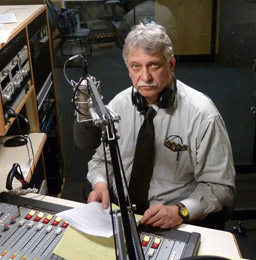When someone dies, especially someone of note, accolades pour in praising the deceased’s virtues and praising his or her legacy. But of all the tributes that came in after the death U.S. Special Representative for Afghanistan and Pakistan Richard Holbrooke, one, for me, stood out.
In a statement, CIA director Leon Panetta – who worked with Holbrooke on some of the toughest policy issues – praised Holbrooke’s intellect and talent. But the striking phrase was this: “In many ways, this loss marks the passing of the postwar generation of remarkable statesmen whose devotion to our nation’s values strengthened America’s leadership in the world.”
While it is still be a tad early to write off the so-called “boomers” in the halls of foreign policy – after all, Holbrooke’s boss, Hillary Clinton is, at 63, only six years younger than Holbrooke at his death – Panetta is still on to something here.
Across the spectrum of the work force, the postwar boomers are starting to retire. We hear about this in every argument in Congress about Medicare and Social Security, two cornerstones of assistance for senior citizens that are reported to be heading into financial trouble under the burden of aging boomers.
A lot of experienced national security hands, particularly in the intelligence community, left after the collapse of the Soviet bloc, and officials say that many of them were not replaced. But the 2001 terrorist attacks in New York City and on the Pentagon sent many agencies scurrying for new analysts and clandestine officers. Now some of those employees who were at mid-point in their careers in the 1990s are also heading for the doors.
Intelligence agencies are cagey about releasing even overall employment statistics. But I asked a U.S. intelligence official about this.
“ It’s well known that the CIA and other intelligence agencies went through a hiring pause in the 1990s,” he replied. “That pace picked up in the late 1990s, but it’s true that you see a lot of intelligence officers walking around who are toward the beginning and end of their careers. Understanding that reality, agencies have made a strong push in recent years to attract mid-career professionals.”
The national security work force is aging and retiring, and a new generation of spies, analysts, and diplomats is taking its place. Their worldview is not shaped by Vietnam or the Cold War, as was the case with Holbrooke and his generation, but by new threats that transcend international boundaries. Rapid technological advances, especially in computers and communications make the jobs of spies and diplomats a lot easier, but much more complex as well.
The new generation moving up through the ranks to replace the boomers in the national security machine is just as dedicated as was Holbrooke. But they are approaching those jobs with an outlook and tools not dreamt of when Richard Holbrooke was making his own ascent up that ladder in the 1960s.


5 responses to “Holbrooke Death Marks Passing of Torch to New Generation”
Although Mr Holbrooke evidently was a hard worker and was well respected by many, it would be better, in my opinion, if we had U.S. representitives that do not come from a Jewish or for that matter an Arab background. With such polarized ideas, its hard to see how they are able to look at the situation anywhere in the Middle East through unbiased eyes.
A little intrigued by your comment: “Rapid technological advances, especially in computers and communications make the jobs of spies and diplomats a lot easier, but much more complex as well.” My assessment is that the complexity you cite makes it more difficult, not easier. It’s easier to collect data (chatter, satellite imagery, etc) but turning that into useful information that can be used is much more difficult. We also discount the human intelligence aspect with an over-reliance on the technology. This rapidness also makes us more prone to react than to reflect (before we react).
I agree with the central premise of the article (the passing of the torch); I know picking nits topic wasn’t the focus of it. Thanks for highlighting this overlooked implication in the national security area. I enjoy your writing greatly.
Thank you for this thoughtful article. When I was in graduate school, reading some of George Kennan’s work was required. How I marveled, back then (1960s), at the extensiveness of his knowledge. How grateful I was to think that he and giants like him (Six Wise Men) loved our country and gave to it so selflessly for such an extended period of time. Holbrooke should be included among these titans.
One wonders, looking on the national scene now, who will carry the torch, who will, with the show the non-partisan love and loyalty to country that these men had. The answer is: “I don;t know” but I can stop in my daily routine to give thanks to people like Richard Holbrook.
Peter Twomey
Marshfield, Mass. 02050
Where is John Negroponte?
Very intriguing article. Wouldn’t it be obvious that the next generation guiding our foreign policy, even older and in mid-career, would be officers coming out of the mid-East war experience? Some of our best PTA officers at my elementary school are youngish Iraq War vets. I’d like to see these men and women in elected offices and serving in all areas of their country … at home .. if they choose that career path.